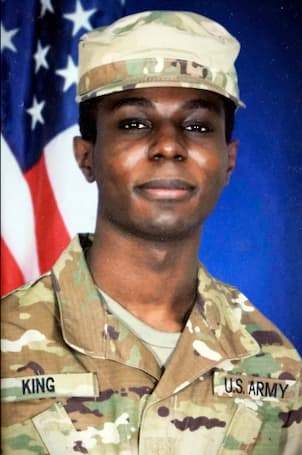The White House announced on Wednesday that the U.S. soldier who had run across the heavily fortified border into North Korea two months ago was now in American custody.
White House national security adviser Jake Sullivan stated, “U.S. officials have successfully secured the return of Private Travis King from the Democratic People’s Republic of Korea. We commend the dedication of the interagency team that worked tirelessly to ensure Private King’s well-being.”
Officials were uncertain about North Korea’s reasons for expelling King, but they suspected that Pyongyang might have concluded that, as a low-ranking serviceman, he held little value in terms of leverage or information. An anonymous official suggested that the North Koreans might have found it more troublesome to keep King than to simply release him.
The Journey Back Home
Swedish officials accompanied King to the Chinese border, where he was met by U.S. Ambassador to China Nicholas Burns, the Swedish ambassador to China, and at least one U.S. Defense Department official. The Biden administration emphasized that no concessions were offered to North Korea in exchange for the soldier’s release.
“We extend our gratitude to the government of Sweden for their diplomatic efforts as the protecting power for the United States in the DPRK, and to the government of the People’s Republic of China for their assistance in facilitating Private King’s transit,” added Sullivan.
King was being transported to a U.S. military base in South Korea before returning to the United States.
However, King’s expulsion doesn’t necessarily mark the end of his troubles or ensure a joyful homecoming, as seen with other released detained Americans. Questions persist about why King ventured into North Korea in the first place. His status remains uncertain since he was declared AWOL by the U.S. government, which could result in military jail time, forfeiture of pay, or a dishonorable discharge.
In the short term, officials stated that their focus would be on helping King reintegrate into U.S. society upon his return, including addressing his mental and emotional concerns.
According to a senior Biden administration official, King was in “good spirits and good health” upon his release. He was expected to arrive at Brooke Army Medical Center at Fort Sam Houston in Texas.
King, who had previously served in South Korea, entered North Korea during a civilian tour of a border village on July 18, becoming the first confirmed case of an American detained in the North in nearly five years.

Sweden’s Contribution
Sweden played a key role in negotiations with North Korea for the transfer, while China facilitated the process, as per administration officials.
The U.S. expressed gratitude for China’s assistance but emphasized that Beijing didn’t mediate in securing King’s release. The U.S. learned from Swedish officials earlier this month that North Korea wanted to expel King, which accelerated the release effort. Sweden acted on behalf of the United States during negotiations with North Korea.
North Korea, through its official Korean Central News Agency, reported that it had completed questioning King. According to North Korean reports, King confessed to illegally entering North Korea due to his discontent with “inhuman maltreatment and racial discrimination” within the U.S. Army and disillusionment with the unequal U.S. society. However, it’s challenging to verify the authenticity of such statements, as past detainees have claimed that they made such declarations under coercion.
The White House did not comment on North Korean state media’s reports regarding King’s motivations. A senior administration official stated that King was “very happy” to be returning to the United States.
Family’s Gratitude
In a previous interview, King’s mother, Claudine Gates, explained that her son had reasons for wanting to come home. She expressed her gratitude to the U.S. government for securing her son’s release.
Jonathan Franks, spokesperson for Gates, said, “Ms. Gates will be forever grateful to the United States Army and all its interagency partners for a job well done. For the foreseeable future, the family asks for privacy, and Ms. Gates does not intend to give any interviews.”
King, originally from Wisconsin, was stationed in South Korea. He was among the approximately 28,000 U.S. troops deployed there to deter potential aggression from North Korea. Concerns were raised about King’s well-being, given North Korea’s history of mistreating some American detainees.
Crossing the heavily fortified shared border between the Koreas without special permission is prohibited by both North and South Korea. In the past, Americans who crossed into North Korea included soldiers, missionaries, and human rights advocates. And of course, those merely curious about one of the world’s most secretive societies.
North Korea’s decision to release King after 71 days appeared relatively swift by the country’s standards. Especially the heightened tensions between Washington and Pyongyang. The tensions are attributed to North Korea’s nuclear weapons and missile program. As well as the U.S.’s expanded military exercises with South Korea. Some speculated that North Korea might have viewed King as a propaganda asset or bargaining chip.
The Biden administration downplayed the idea that King’s release signified a broader shift by Kim Jong Un. However, it reiterated its readiness to engage in diplomatic talks with North Korea.
